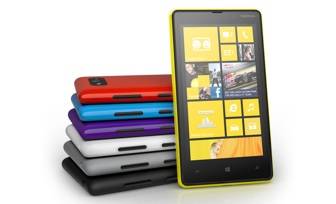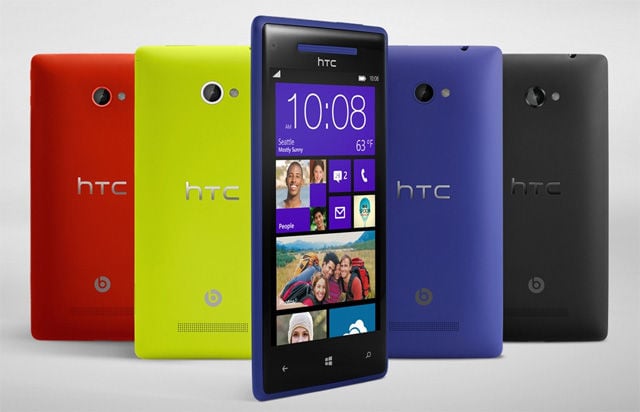This article is more than 1 year old
Windows Phone 8 must be Microsoft's priority one, two AND three
Woe betide Nokia if Redmond can't keep its smartphone promises
Analysis Unless Microsoft gives Windows Phone some urgent attention, all of its hard work will go up in smoke and take Europe's largest technology company with it.
We've now seen Windows Phone 8 running on four strong handsets - two each from Nokia and HTC - and it's fair to say the manufacturers have kept their side of the bargain. HTC wins on design, Nokia on build quality and software features, and Nokia can boast one genuine unique selling point: the Lumia 920's camera that no other phone can match. But has Microsoft kept its side of the deal?
Nokia burned its old phone platforms because Microsoft promised a more vibrant app ecosystem. But almost two years later, it's still not there.
This won't be easy reading for Microsoft; its engineers have moved the operating system to a new kernel, Windows Phone 8 is pretty good at running older phone software, and the company has built a solid and reliable base. This is far from fatal.
Now with Windows 8 chief Sinofsky gone, Microsoft can now refocus on the importance of its phone platform. After esoteric adventures such as the development of the Surface laptop-cum-tablet - like Caligula planning to make his horse a consul: "a combination of all the gods and to be worshipped as one" - focus is what Microsoft needs.
Stop fretting about tablets. You can fix Windows 8 by making the new touchscreen-driven Metro user interface optional on desktops and laptops that aren't primarily touch devices - just tweak it, so it's no longer so much in your face. People will keep buying Windows for PCs and they'll be glad of the changes you made. Windows Phone should now be priority number one, two and three at Microsoft. It needs to be in this race in two years.
There are several issues with Windows Phone today that are hard to overlook. One is the state of the platform's online software store Marketplace. In comparison with Apple's and Google's outlets, it looks worse, if anything, than a year ago. It reflects inertia rather than momentum.

Nokia's heavyweight WP8 flagship handset is a great camera phone
A depressing number of apps haven't been updated in months. There's no tumult of new WP8-capable programs. And some major applications, for example Spotify, that were present a year ago are not there today.
This may reflect the lateness of the Windows Phone 8 software development kit, which means developers haven't yet had a chance to rewrite their applications for the new and much more capable platform. Or it may reflect the fact programmers have far more lucrative markets to target besides Windows Phones: iOS and Android are already very competitive marketplaces, so any time spent coding for a third platform is very hard to justify.
Rather ominously the unified realm of Windows 8 that was promised hasn't materialised: Windows 8 smartphone apps won't run on Windows 8 desktops; a Windows 8 Metro PC app will require a different code base to run as a Windows 8 Metro mobile app, as Tim Anderson pointed out here. Microsoft retains the Silverlight-based XAML runtime in Win 8 or the cupboard would look very bare indeed. Developers may well be beavering away writing native code for WP8, but if they are, it's going to take a while to make a difference.
As we've mentioned in previous articles, Windows Phone 8 doesn't reflect a year's worth of user-land improvements. In terms of renovation work the user can see, it's more of a minor feature pack. For example, there's little benefit to having DirectX and the Autocad frameworks on a phone until there are apps that can take advantage of them. The user opting for a new Windows phone will have a curious experience.
On the one hand, especially if they're a heavy Facebook user, there's a vivid and imaginative handheld computing experience that's radically better than anything else on offer. They'll find they can pin friends to their home screen on tiles that aggregate their photos, social networking messaging, as well as calls, emails and texts. Facebook doesn't need to make "the perfect Facebook phone" - Microsoft has done it for them. The feedback for this is uniformly positive; it's how the iPhone should have been designed.
But at the same time, users may be wondering why the music playback volume and ringtone can't be decoupled, or where Instagram is, or why Tumblr isn't supported in the People hub, or why you can't mark a tweet as favourite, nor flag an email message as important.

HTC's Windows Phone 8 mobile is surprisingly svelte and tactile
And there's a mismatch between the pricing of Windows Phone devices and the segments of the market that most appreciate the futuristic social-centric user interface. That part of the market is looking for £20 to £25 monthly contract bargains - not for £35 to £40 premium models.
Microsoft can do several things here.
It needs to assert the importance of the smartphone. It also needs to reassure developers and hardware makers that the recent upheavals haven't distracted the company. Microsoft's welding of a touchscreen phone interface onto the PC version of Windows 8 hasn't really pleased anyone - Redmond needs to put all its weight behind the phone platform and follow the Apple strategy - thew iPhone maker successfully scaled its phone operating system up to a tablet. The Sinofsky strategy was too clever by half.
Microsoft also has to reassure hardware makers and their supply chains that the OS will still be there in two years. And it needs the users to come along with it by announcing a quarterly schedule of updates. The hard work has been done - a great design and a difficult platform shift. But Windows Phone drifts into the Christmas buying season in a strangely listless state.
Nokia has enough cash for another swing at the market next year. It's certainly in a stronger position than RIM, which must do all the platform development itself. But Nokia can't save it Windows Phone by itself - and it needs it to succeed more than anyone. ®
Footnote
Don't forget to check out our Nokia Lumia 920 and Lumia 820 reviews.
